


Oocyte Cryopreservation
Freeze your eggs and stop the clock on the aging of your eggs


If you plan to delay starting your family, or if you have a medical condition that will require radiation or chemotherapy, you may have your eggs retrieved from your ovaries, freeze them, and conceive with them at a later time.

Freezing Your Eggs
Egg Freezing is a relatively simple and straightforward procedure. It involves retrieving eggs from the ovaries, cryopreserving them, and storing them in liquid nitrogen.
The success of the freezing eggs process primarily depends on the patient’s age when her eggs are frozen.
It is important to note that the probability of a successful outcome from freezing your eggs remains independent of the patient’s age when the eggs are thawed, inseminated, and the resulting embryo(s) transferred into the uterus.




More than one cycle of Egg Freezing can maximize the number of frozen eggs for your future use.
Egg Freezing Treatment Process
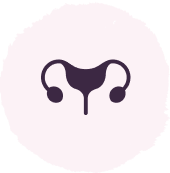
1 — Ovarian stimulation
Your treatment is always individualized to maximize the probability of a successful outcome. You will receive your personalized ovarian stimulation calendar

2 — Egg retrieval procedure
The egg retrieval procedure is performed at our Clinic. The procedure only takes a few minutes, and we use very comfortable conscious sedation for analgesia

4 —Egg storage in liquid nitrogen
Following cryopreservation, the eggs are transferred to a liquid nitrogen storage chamber in our Clinic. Theoretically, there is no limit on the length of storage

3 — Egg cryopreservation
All available eggs are cryopreserved
Below is an example of an Egg Freezing treatment cycle. Your individualized protocol may take less or more time to complete.
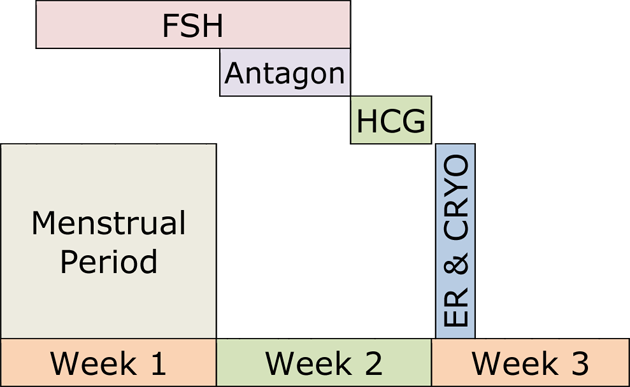

Egg Freezing Procedure
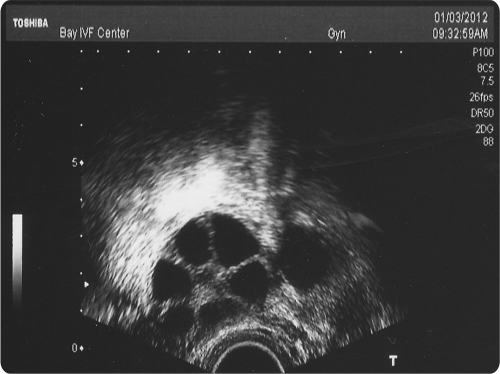
Ovarian stimulation
There are various forms of ovarian stimulation protocols, each with multiple modifications. Your treatment is always personalized to maximize the likelihood of success.
The optimal protocol for your IVF treatment is selected based on your medical history and your pre-treatment evaluation.
Ovarian stimulation takes approximately ten days. During this time, your progress is monitored by estradiol (estrogen, E2) and progesterone blood levels and ultrasound examinations.
Ovarian stimulation should result in the development of several eggs in each ovary. The ultrasound image shows a stimulated ovary. Each of the several follicles (dark circles) contains a microscopic egg.

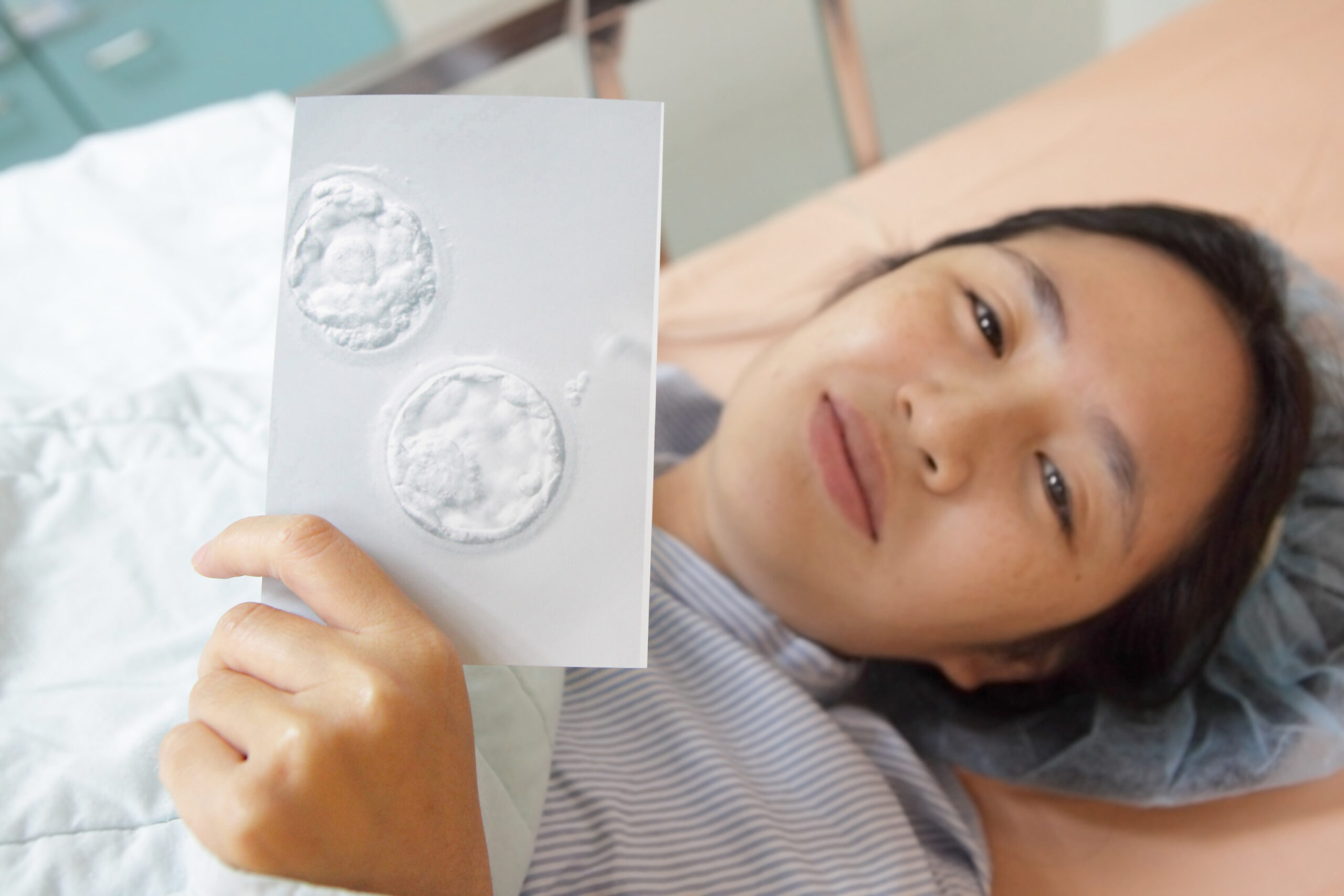
Egg Retrieval Procedure
The egg retrieval procedure is performed at our Clinic. We provide comfortable, conscious sedation analgesia.
The egg retrieval is a quick and relatively painless procedure that takes about five minutes to complete. Here’s what happens during the procedure:
Administering Pain Medication
- Dr. Polansky administers pain medication and relaxation drugs through the IV line, inducing a state of twilight anesthesia.
- Most patients will fall asleep during the procedure, while some might remain awake and view the egg retrieval on an ultrasound screen.
Egg Retrieval Process
- Under ultrasound guidance, Dr. Polansky retrieves eggs from the ovaries using a thin needle passed through the top of the vagina.
- The needle aspirates the follicular fluid containing the eggs. The process is usually completed within minutes.
- Embryologists then examine the follicular fluid under a microscope to identify eggs.


Cryopreservation of eggs
On average, eight to fourteen eggs are aspirated during the egg retrieval procedure. The eggs are identified under the microscope and placed in petri dishes filled with culture medium. The composition of the culture medium resembles the fluid secreted by the Fallopian tubes.
Six hours after the egg retrieval, the eggs are cryopreserved (vitrified). Preparation for the freezing process involves removing water from within the eggs and replacing it with a cryo-protective substance to prevent ice crystal formation during vitrification and subsequent thawing.

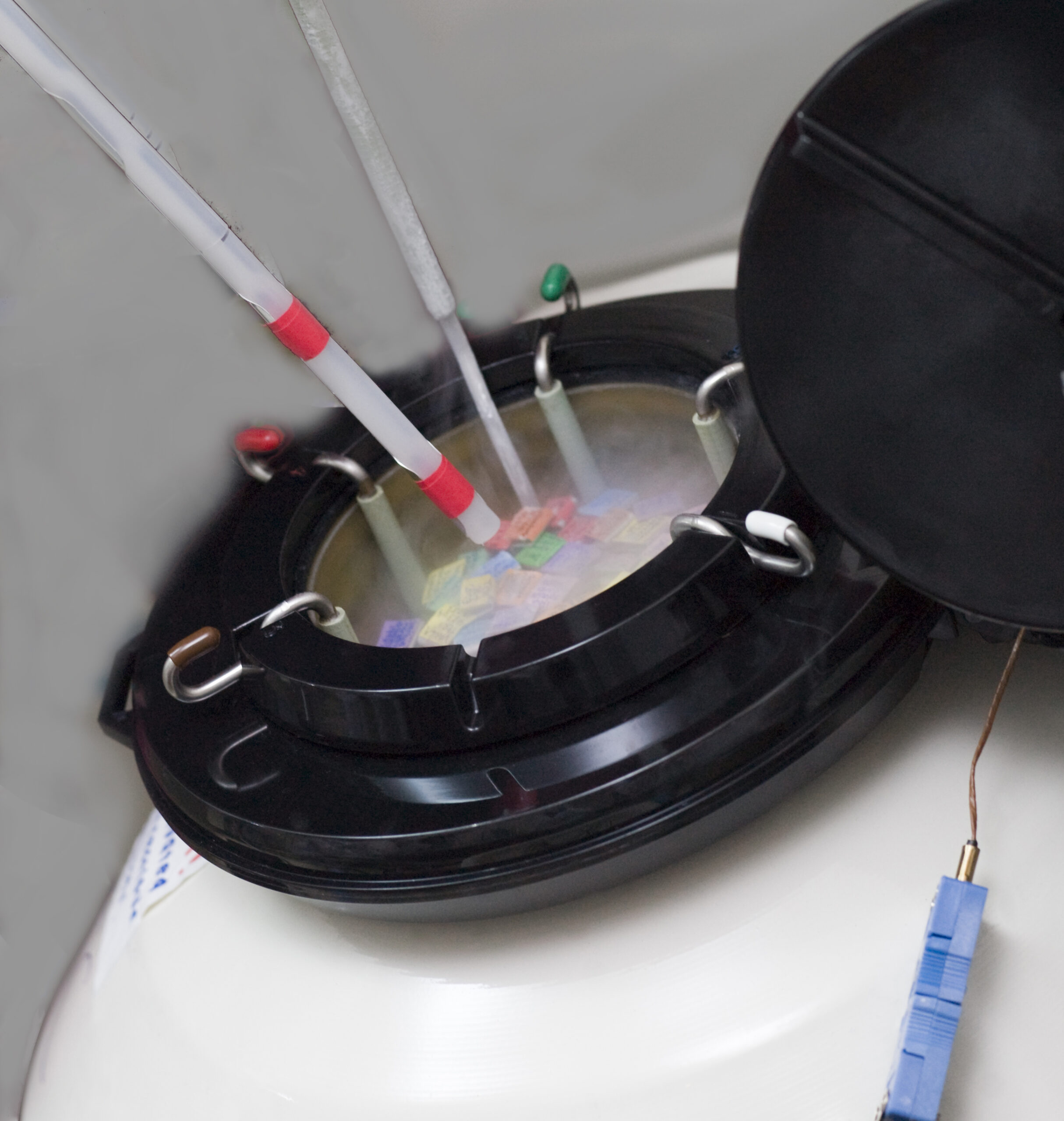
Liquid nitrogen storage of eggs
After the egg freezing process, the frozen eggs are transferred to a liquid nitrogen storage chamber in our Center. Theoretically, there is no limit on the length of storage, but conceiving past the age of 40 may result in a high-risk pregnancy.
When you decide to conceive with your frozen eggs, you will have one or two eggs thawed, fertilized, and transferred inside your uterus. The implantation rate of the thawed fertilized eggs (embryos) is similar to the un-frozen egg embryo implantation rate and, as mentioned above, primarily depends on the patient’s age at the time of egg freezing.
If you are successful, your pregnancy becomes indistinguishable from conception through intercourse, and your obstetrical care should be no different than if you conceived without any treatment.


Prerequisites for Egg Freezing
Only a few treatment prerequisites are needed before the start of your treatment. They assess the egg quality.
Your age
The probability of a successful Egg Freezing treatment becomes exceedingly low by age 44. You must be 43 and 11 months or younger when your Egg Freezing treatment begins. The Egg Freezing treatment is most effective for women younger than 35.
Your weight
Your BMI must be no greater than 31 for an adequate ovarian response and safety during the egg retrieval procedure. If your BMI is higher, please follow the IVF Diet and Lifestyle (PDF) recommendations as closely as possible.
Pathogen testing
This testing is required by the State of California. You must be tested for Hepatitis B-Surface Antigen, Hepatitis C-Antibody, HIV I&II, and RPR.
Ovarian Reserve Assay (ORA)
ORA assesses the likelihood of producing normal-quality eggs. It involves measuring Follicle Stimulating Hormone (FSH), estradiol (estrogen, E2), and Anti-Mullerian Hormone (AMH) blood levels.
These test results are used to optimize ovarian stimulation.
Antral Follicle Count
The number of antral follicles (small fluid-filled sacs within the ovaries seen on ultrasound) in unstimulated ovaries is related to the quality of the eggs. Ideally, there should be approximately 20 antral follicles in both ovaries combined.
Genetic testing (optional)
All future parents should consider genetic screening for hundreds of the most common genetic diseases. Please inform us during your initial appointment at Bay IVF if you would like to have your blood sample sent for genetic screening.
IVF diet and lifestyle
Environmental factors have a significant impact on reproductive health. Please review the IVF Diet and Lifestyle document (PDF) for a comprehensive list of environmental reproductive health recommendations and a source for dietary supplements.



We use gentle, individualized ovarian stimulation protocols and strive for the highest egg quality.
Meet Your Doctor

- Dr. Polansky received his medical diploma from Charles University in Prague, the Czech Republic, in 1978.
- After completing his OB/GYN residency at Jewish Hospital in Saint Louis, MO, he graduated from the Reproductive Endocrinology and Infertility (REI) fellowship at Stanford University in 1985.
- In the same year, he co-founded the Stanford IVF Clinic.
- Dr. Polansky obtained board certification in Obstetrics and Gynecology in 1986 and became REI subspecialty board certified in 1988.
- In 1987, he left Stanford University and established Nova IVF.
- In 2011, he founded Bay IVF, where he provides advanced fertility treatments with a holistic approach, utilizing state-of-the-art techniques.
- Dr. Polansky personally performs ultrasound examinations, egg retrievals, embryo transfers, and ovarian and endometrial stimulations for his patients.
- He is deeply committed to his patients and is always ready to lend a helping hand.
Frank Polansky, M.D.



Initial Appointment Questions
When you call to schedule your consultation, one of our Front Office Coordinators will ask you a short series of questions regarding your reproductive history.
Your Initial Visit at Bay IVF
Attending a new patient appointment at a fertility clinic can be stressful. Our primary objective is to ensure that your initial visit is friendly and relaxing. We encourage you to ask questions at every step of the process.

1 — When You Arrive
You will be welcomed by one of the clinic receptionists. One of our nurses will measure your height and weight and take your blood pressure

2 — Meet Your Doctor
Dr. Polansky will ask you a series of clarifying questions and then provide you with a summary of the factors contributing to your infertility

4 — Exam Room
One of the nurses will escort you to an examination room. Your examination will begin with listening to your lungs and heart

3 — Ask Your Questions
You will then have a discussion with him about the most suitable reproductive treatment(s) for you. During this time, you will have the opportunity to ask any questions you may have

5 — Ultrasound of the Ovaries
The next step is a pelvic ultrasound to examine the uterus and ovaries. This ultrasound will help determine the number of antral follicles present within the ovaries

6 — Financial Part
Following that, you will have a discussion with one of the financial advisors regarding the financial aspects of your treatment, including potential treatment financing options

8 — Support 24/7
If you have any questions after leaving the clinic, please feel free to reach out to us via phone call, text, or email. Open and discreet communication is an integral part of the care we provide at Bay IVF

7 — What About Time?
Your entire visit is expected to last approximately one hour


Schedule Your Initial Consultation With Dr. Polansky
Online (No Cost) or In-Person
Call or Text Us: 650-322-0500
You can also complete the form below to request your initial consultation


We look forward to meeting you at Bay IVF!







